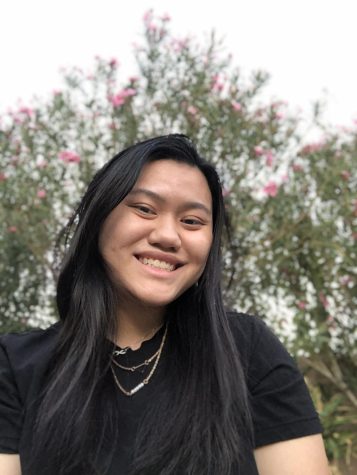The Hope in Hope Squad
December 11, 2020
A student-suicide prevention program has started up on campus earlier in the year and aims to lower suicide rates in CCSD.
Hope Squad is a school-based peer to peer suicide prevention program and started in 2020’s Spring Valley school year. Hope Squad’s goal is to prevent suicides through education and training. While students aren’t trained therapists, they’re helping students by taking the initiative, destigmatizing mental health, and with openness.
The process of becoming a member isn’t like a regular club, where if you express interest, you join it. Members are nominated by other peers, and out of all the nominations, they become selected by the advisor. In Spring Valley, that advisor is Adam Gent.
“I was really excited about [Hope Squad] and started learning about the statistics behind it, how successful it’s been,” advisor Gent said.
Hope Squad was deemed “supported” by the Division of Substance Abuse and Mental Health’s Evidence-Based Workgroup, the third-highest tier a program could have in Utah. To have the title of “supported,” programs have to be consistent with their results, and for Hope Squad, they’ve created positive effects on people’s knowledge, belief, attitudes, and/or behaviors.
“We make sure we’re training students and club members the right way by following curriculum and following manuals and procedures the way they’ve been laid out by Hope Squad,” Gent said
Hope Squad trains its students with a research-based curriculum. While students are not advised to give out advice and fix problems, they’ve been trained to listen and have an open-mind for those who come asking for help.
“I hope… that I can help people or just be their friend when they need one, even if it’s just one person. It still makes a difference,” Secretary Madison Alexander said.
According to the Nevada Coalition for Suicide Prevention, suicide is the number one leading cause of death for adolescents aged 12 to 19. There have been more suicides than motor vehicle accidents death, and homicide combined in Nevada.
“We’re the first school to do this online,” Gent said.
Dr. Gregory Hudnall, who founded Hope Squad, had told advisor Gent to do what he needed to do to make Hope Squad work during distance education. Spring Valley is paving the way for how Hope Squads will be run during virtual learning.
“It’s a big challenge because.. we don’t get to see people in person. It’s really challenging to see who’s struggling,” Gent said.
It’s much harder to see body language and people who show symptoms of struggling or just generally needing help. Even with students who have cameras on, it’s still hard trying to gain a sense of what everyone’s feeling. Virtual learning has made it harder to recognize signs of withdrawal and needing help, but that’s a more significant incentive for Hope Squad to exist during these times.
“I think distance learning, in general, lacks an aspect of interpersonal connection, but otherwise I think our club has been very successful in a virtual format,” Ambassador Nykita Rustad said.
Hope Squad has already been able to help a person out, showing effectiveness despite these trying and difficult times.
“I definitely think that we could make a bigger impact if we were in school face to face, but I know that were are helping people, which is the most important part,” Alexander said.
According to the Nevada Division of Public and Behavioral Health Office of Suicide Prevention, talking about suicide does not encourage suicide. Talking to someone allows them to express their fears and have a safe place for communication. One of the first steps is to encourage someone to talk. However, the conversation should be meticulously maintained.
“I think our club will have a large impact on both our school community and communities outside of our school,” Rustad said. “The prevention techniques we will be educating ourselves on are lifelong skills that each of us will carry with us throughout our lives.”
Knowing how to talk to someone and make sure they feel validated is useful and a versatile skill to have in conversation.
“The main thing is for it to be able to help as many students love and enjoy life,” Gent said.


